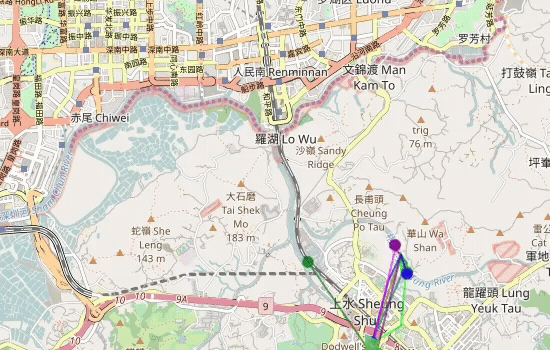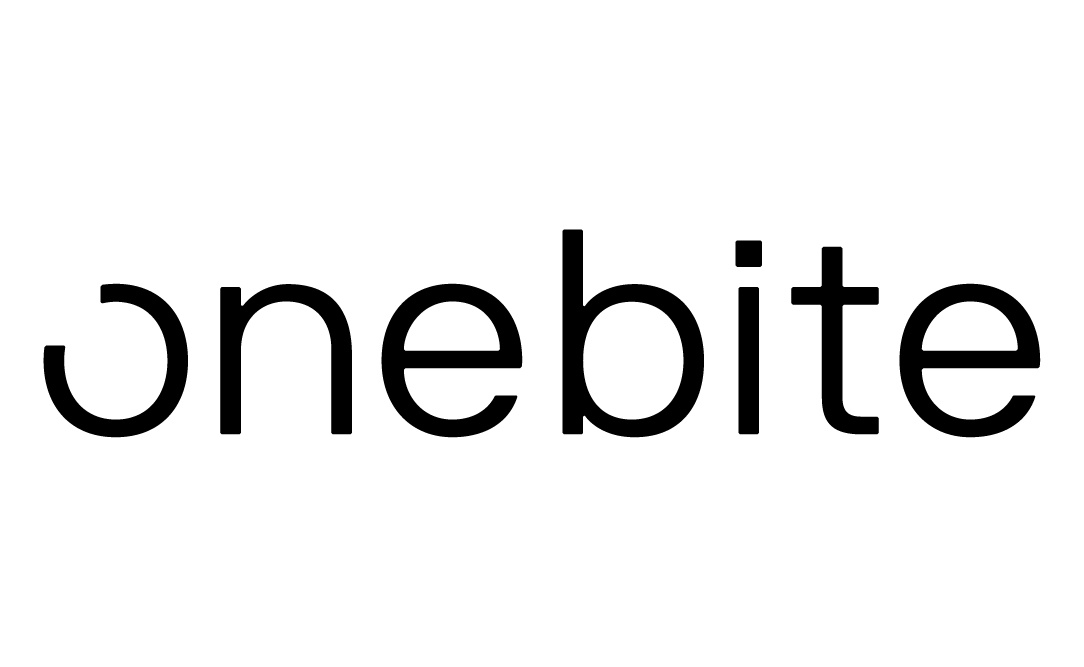Cesar Jung-Harada:發展獨特海洋文化 讓旅遊與海洋扣連|Cesar Jung-Harada: A culture that connects travel and the ocean





在香港談城巿規劃,基建、房屋是重心,近年也多談了公園、社區,但香港人引以為傲的海港,卻總是在城巿規劃中被遺忘。就如最近有團體建議,把啟德的四塊用地興建水上活動設施,讓巿民可享用海濱對出的水體,結果被城規會否決。
「雖然香港是個沿海城巿,但人與海的關係卻是愈來愈疏離。」設計機械人清理海洋垃圾、關注海洋發展的MakerBay創辦人Cesar Jung-Harada,認為海洋是香港的重要資產,一味只打填海的主意,並不是發展的好方法,甚至破壞了海洋、損害我們的下一代。「香港擁有獨一無二的海洋環境,東西兩邊各有特色。若能好好發掘它、規劃它,才是可走得更遠的發展,香港甚至能找回自己的獨特文化。」
從清理油污災難 到發展海洋事業
「這個是我最近正在設計的,預計下星期會完成,落海執垃圾。成功的話,就可以大量生產了。」在荃灣舊工廠大廈內的MakerBay工場,Cesar站在一件白色、外形像半艘船的機械旁,說最近與本地大學合作,設計出這個清理海洋垃圾機械人。「他本來是我的學生,現成成了我的客人。」
Cesar來自法國,自小在海邊的城巿長大,10歲就揚帆出海。大學畢業後,2010年美國發生史上最嚴重的墨西哥灣漏油災難,他於是隻身飛到新奧爾良,發明了清理油污的機械船Protei。「我看見政府改裝漁船,讓漁民出海用傳統的物料收集油污,但這太危險了,油污有毒,很多人因此患上皮膚癌。」
3年後,他帶著得獎的Protei來到香港,創立MakerBay,原本只是以「專注社會和環境議題的自造者空間」,提供機器工具、工場給更多makers製造各式各樣的實物。「我們起初偶爾會辦一些工作坊,鼓勵設計思維之類,但後來愈來愈多人找我們合作海洋項目,環保團體、大學、政府部門,我覺得這幾年的確是提升了不少人對海洋的注意。」
追蹤本地海洋垃圾
這些年以來,除了Protei,Cesar還研發了追蹤海洋垃圾的裝置、記錄海底珊瑚狀況的機械人等,例如與海洋公園合作推動香港珊瑚人工智能辨識系統。「我們發現不少有用的數據,例如當時香港海灘突然出現大量海洋垃圾,我們於是在香港不同地區的河流附近,放置裝有GPS定位系統的模擬垃圾,記錄垃圾流出大海的足跡。結果我們發現,大部分垃圾流出大海後,因為海流的關係,會重複出現在香港的海灘,例如有一件垃圾,在不同日子出現在香港7個不同的海灘。而垃圾一旦沖出香港海域,它只需一個月時間就漂到台灣、兩個月就到達日本。本地海灘的垃圾,不少其實都源自本地。」Cesar認為,要推動改善海洋環境,首先要認識海洋的運作;在海洋垃圾這事上,便要了解垃圾流向,才可以制訂防治措施、與政府甚至內地合作減少海洋垃圾。
填海太短視 香港需長遠海洋規劃
不過,雖然社會對於海洋生態的意識是提高了,但整體海洋規劃則仍然是十劃未有一撇。近年的港珠澳大橋、機場跑道,在工程開展前總會做環境評估、研究工程對海洋生態的影響,然後亦有相應的補償措施,如建立人工紅樹林之類。作為關注海洋保育的人,Cesar說這些當然是好事,但他認為這些舉措不能只是因應個別工程而做,應該要有長遠的設計規劃。
而大規模的填海,在Cesar眼中也是短視的,尤其若我們眼光只放在解決人口問題。「我常思考,我們的海洋有多重要呢?對於現在的社會來說,金錢總是最重要,其次是科技,然後是社會秩序,最後才是環境。但我認為,這個排序是倒轉了,擁有好的環境是最基本,它讓我們可以生存下去,才可以有秩序、有金錢。錢不能讓你呼吸、你肚餓也不能吃錢的(You can’t breathe money. You can’t eat money.)。」
那麼,香港的海洋,可以如何規劃呢?「世界各地的沿海城巿,發展趨勢都是向海的,例如不少地方都開始研究、甚至已嘗試搬到海上居住,你看荷蘭、威尼斯都是如此,它們長期以來受全球暖化影響,早就要著手想辦法適應。另一個趨勢是發展海洋可再生能源,例如離岸太陽能、離岸風力發電等。」
香港海洋獨一無二 應更小心善用
香港的海港,作為重要的資產,它長久以來被用作交通航道,船運、物流世界知名;時至今日,房屋問題讓海洋被視作另一種「土地」,填海成為解決土地問題的「唯一」方法。但海洋還可以其他更好的用途嗎?抑或作為環保分子,認為海洋本來就不該被人類「使用」?
「我們當然可以使用海洋的資源,只不過我們不應該在使用的同時,破壞了海洋。」Cesar說,對香港來說,讓旅遊與海洋扣連,或許是其中一個可行的方向。「一來,我們當然可以發展生態旅遊,香港的地理環境是獨一無二的,西邊因為是內地河流的出口、鹹淡水交界,沖積物很多,所以香港西邊有很多泥灘、紅樹林。而東邊的沿岸,是兩個完全不一樣的環境,東邊很多沙灘。香港不大,由東至西已可以看到很豐富的生態多樣性,這在全世界都很少見的。」另一方面,除生態旅遊以外,香港擁有美麗的海港,本來就是很獨特的地方亮點,可以塑造很強的本地文化。「當旅遊與海洋扣連,人們或許就會發現,原來保護海洋也可以讓這個城巿賺取收入、是很重要的資產,而且旅遊業連結的行業很廣泛,若這真可以成真的話,香港將有更多人願意投放資源到這個海洋,更多人希望它變得更美更好﹗」
相片來源:zoom.in.hongkong 、Cesar Jung-Harada、 Eddie Yung 、Ken Chew、Mindorobots、Sidhant Gupta、Rohak Singhal
地點 : 香港
The discussion of urban planning in Hong Kong has been revolving around infrastructure and housing. Public parks and neighbourhoods were never on the table until recent years. Even so, the harbour that the city takes pride in is still absent in the agenda of urban planning. Recently, a proposal to build public water sports facilities across four pieces of lands in Kai Tak met rejection from the Town Planning Board (TPB).
"Hong Kong is a coastal city, but the human-ocean relationship is getting further and farther." Cesar Jung-Harada is concerned about the issue of ocean development. The co-founder of MakerBay has been developing ocean clean-up robots and reckons the ocean is a valuable asset of the city. Reclamation, as Cesar puts it, is not a right development approach, for it harms the sea and the future generations. "Hong Kong possesses a unique marine environment that combines characters of both the West the East. If we could explore and plan it well, we can find a way for our development to go further as we can enhance our unique culture."
From Oil Spill Clean-up to Developing Marine Careers
"This is a design I have been working on for the ClearBot company. Next week, it should be complete and ready to clean up the sea. If it succeeds, we can mass-produce it." MakerBay hides in one of the old industrial buildings in Tsuen Wan. Here, Cesar – clad in white and standing next to a boat-like machine – describes this ocean clean-up robot project he is working on with a local university student. "He used to be my student, and now he is my client."
Born and raised in France, Cesar recalls his childhood in a coastal city. An ardent sailor since 10, he witnessed the Deepwater Horizon oil spill in 2019, the year he was graduated from the university. Disheartened by the world's most disastrous oil spill, he flew to New Orleans alone to invent an oil spill cleaning vessel known as 'Protei'.
"I saw the government refitting fishing boats so the fishermen would use traditional materials to collect the spilt oil. But that was too dangerous – the oil spill was toxic, many people got skin cancer because of that."
Three years later, Cesar Jung-Harada brought his award-winning Protei to Hong Kong and established MakerBay, which was at first "a social and environmentally conscious makers' space". MakerBay in the early days provided makers with machines, tools and space to work on all kinds of projects. "We used to host workshops from time to time to promote design thinking or something like that. But eventually, we were more and more often approached with collaboration projects about ocean issues - environmental groups, universities and governmental departments. I think people's attention to the ocean has been rising in recent years."
Tracking Local Marine Litter
Besides Protei, Cesar has also invented a marine litter tracking device and a robot to record underwater corals, including his collaboration with Ocean Park in the establishment of a Hong Kong Coral Artificial Identification System. "We found many useful data. For example, when a large number of marine litter was washed up on local beaches, we placed simulated garbage equipped with GPS near rivers in different parts of Hong Kong. We recorded the footprints of garbage flowing into the sea. As a result, we found that a majority of the garbage flowing into the sea would repeatedly end up emerging on local beaches because of ocean currents." he explains. "For instance, a piece of garbage could show up on seven different beaches in Hong Kong on different days. When it leaves Hong Kong waters, it will flow to Taiwan after a month, and Japan after two months. A lot of the garbage on local beaches are produced locally."
To improve our marine environment, Cesar believes, begins with understanding how the ocean works. When it comes to marine litter, it is crucial to grasp its flow so we can implement prevention measures and work with the government, or even with Mainland China, to reduce ocean garbage.
"Reclamation is short-sighted, Hong Kong needs long-term ocean planning."
While the social awareness of marine ecology has increased, the direction of overall marine planning remains obscure. For new infrastructure in recent years, such as the Hong Kong-Zhuhai-Macao Bridge and airport runways, the government would conduct preliminary environmental impact assessments and studied the impact of the project on the marine ecology, followed by compensatory measures, such as building artificial mangroves.
Concerned with marine conservation, Cesar reckons these measures, though undoubtedly positive, should not only be done only in response to individual projects and a long-term design plan is crucial.
Large-scale reclamation, in Cesar's words, is also short-sighted - especially if we only stick with the population problem. "I often think about how important our oceans are. For today's society, money is always the most important, followed by technology, then social order, and finally, the environment. The order should be reversed. Having a good environment is the most fundamental. It allows us to survive so that we can have order and money. You can’t breathe money, you can't eat money."
So what should Hong Kong's ocean planning look like? "Developing toward the sea is trending among all coastal cities in the world. Many cities have begun to study or even tried to build habitats above the sea. The Netherlands and Venice are some cases in point. They have been affected by global warming for a long time. We have to start thinking of ways to adapt to climate change. Also trending is the development of marine renewable energy, such as offshore solar and wind power."
Use the unique ocean of Hong Kong wisely
The harbour – an invaluable asset of Hong Kong - has long been used for transportation, fostering our world-class shipping and logistics industries. Today with the city so stressed by housing problems, reclaiming our sea for new land is deemed as the only solution to the land shortage. Can the ocean serve better purposes? Or as an environmentalist, does Cesar think that the sea should not be "used" by humans?
"Of course, we can use the resources from the ocean, but we must not destroy it while using it." For the case of Hong Kong, Cesar continues to explain, connecting tourism with the ocean is worth exploring.
"We can develop eco-tourism. Hong Kong's geographical environment is unique. Because the western part of Hong Kong is the outlet of inland rivers and the junction of brackish and freshwaters, hence the significant numbers of alluvial deposits, mudflats and mangroves. The coastal area of the Easts completely different – there are a lot of beaches. Hong Kong is not big, and you can see abundant biodiversity from the East to the West – which is rare in the world."
The spectacular harbour is another highlight of the city, especially in cultural aspects. "When tourism and the ocean come together, people may find that the sea is an invaluable asset and protecting it can draw an income to the city. Then, many industries can thrive on tourism.
If this works, more people in Hong Kong will be willing to invest in the ocean, and more people will want it to become more beautiful and better!"
Photos source: zoom.in.hongkong , Cesar Jung-Harada, Eddie Yung, Ken Chew, Mindorobots, Sidhant Gupta, Rohak Singhal
Location: Hong Kong
你可能對以下吉人吉事有興趣:
You may also be interested in these GUTS Stories:





